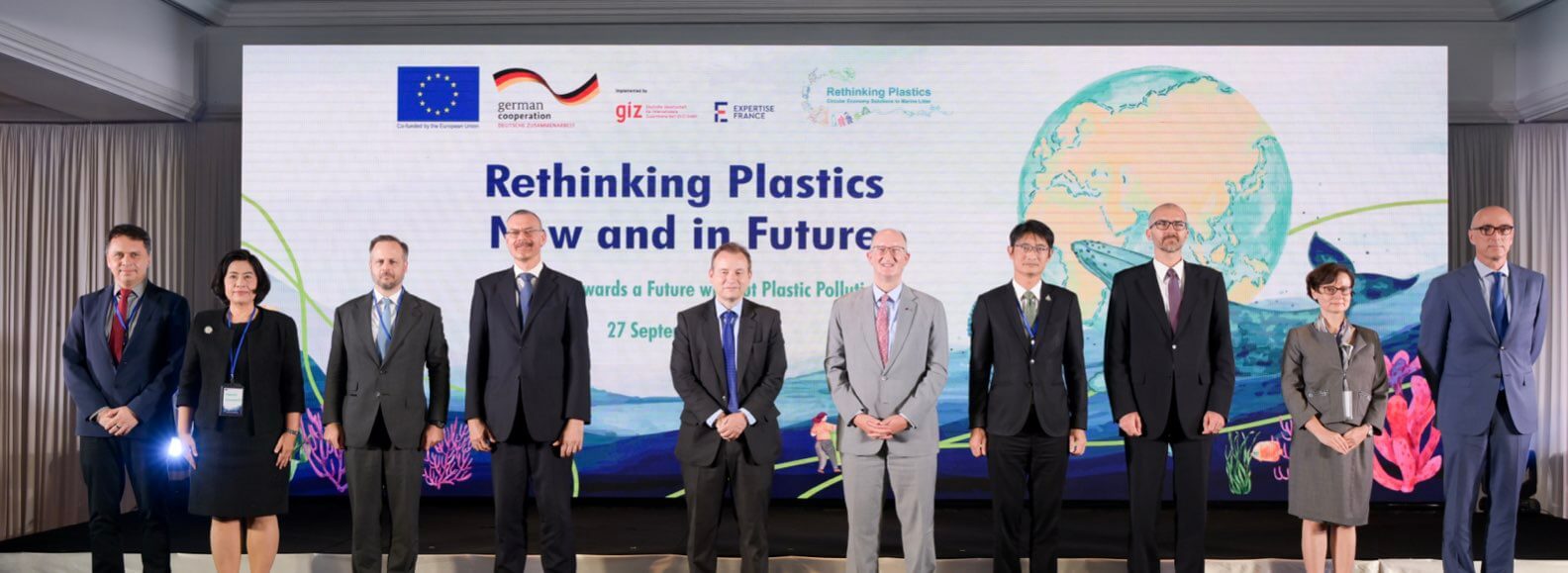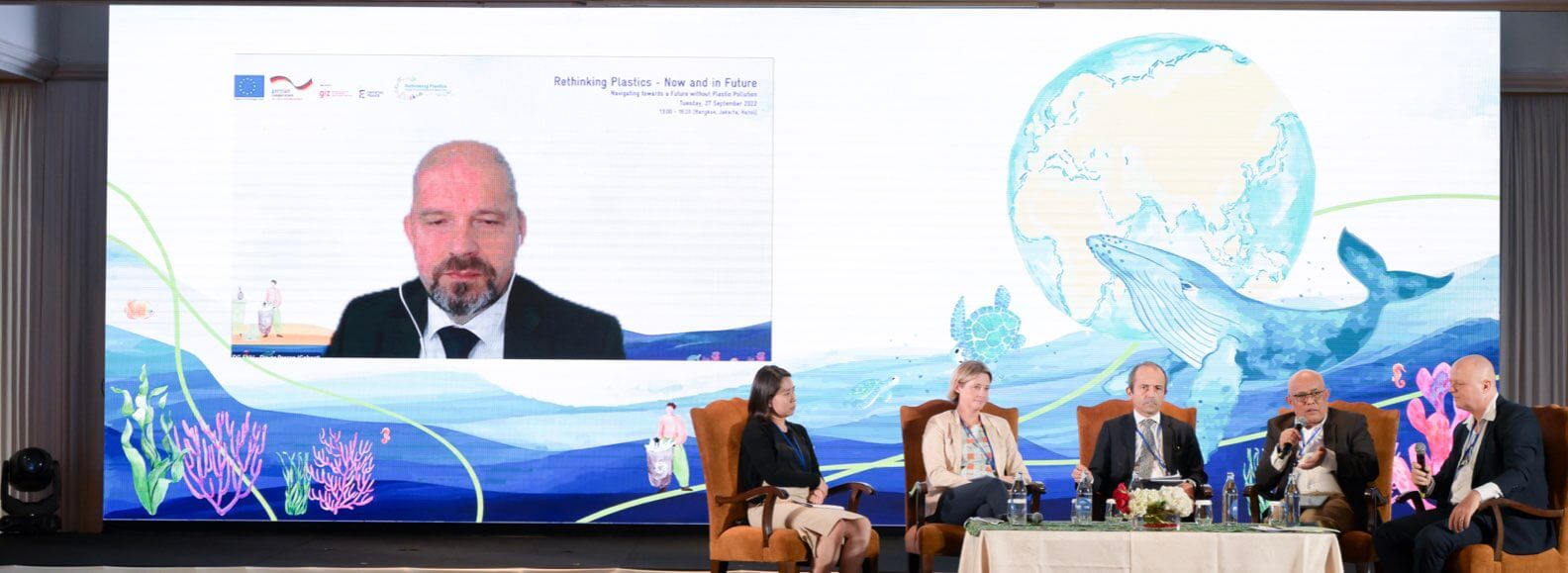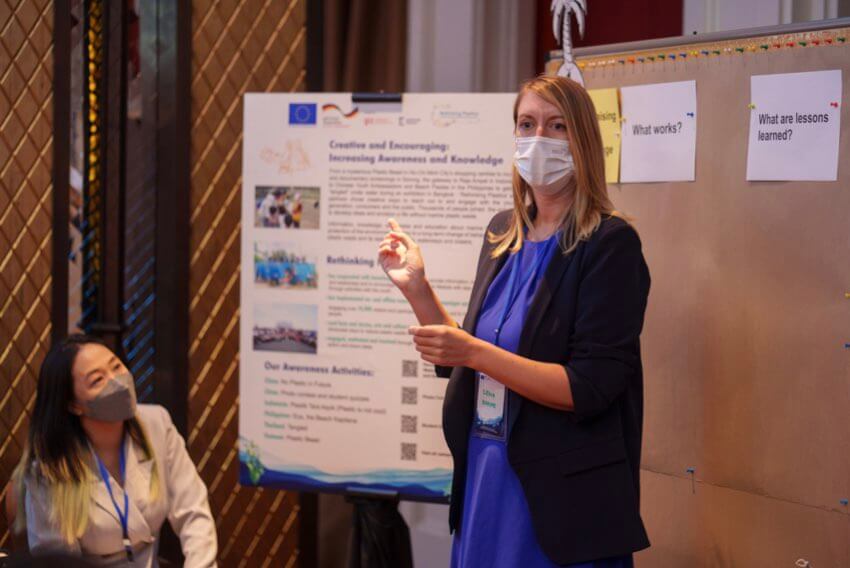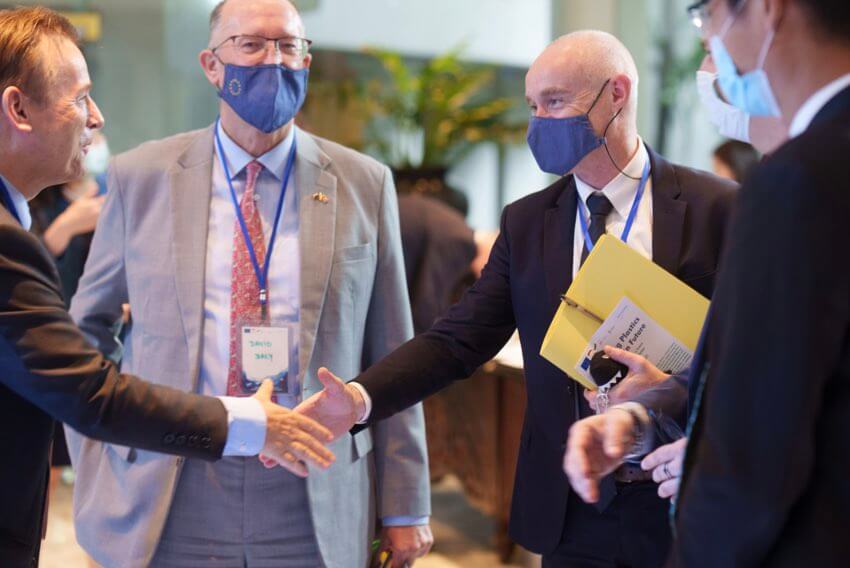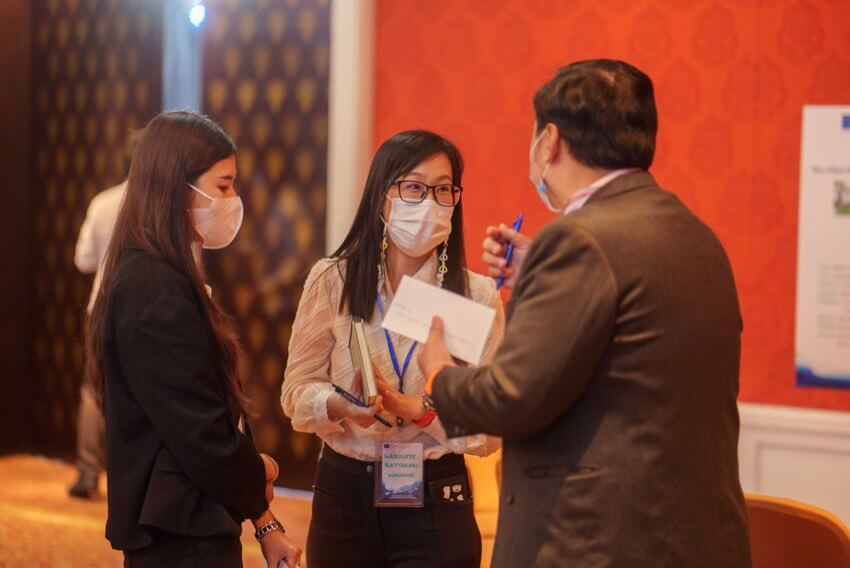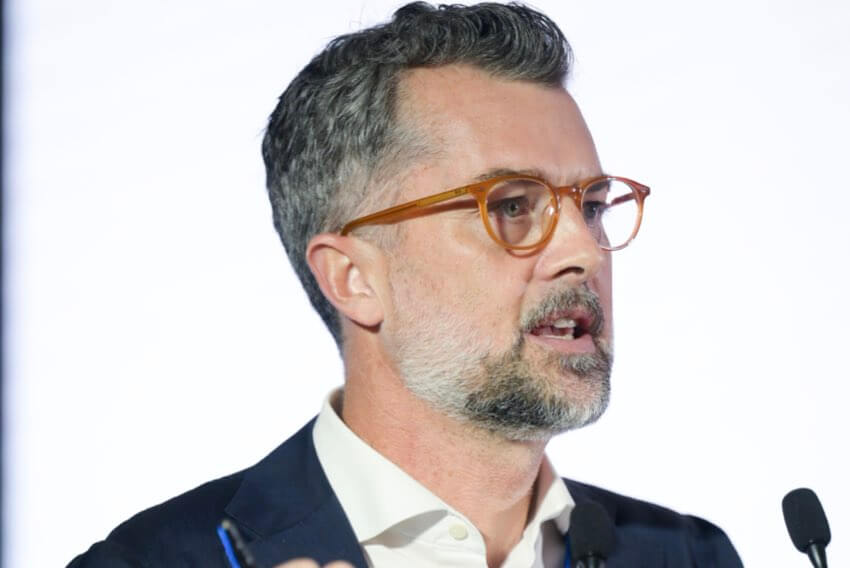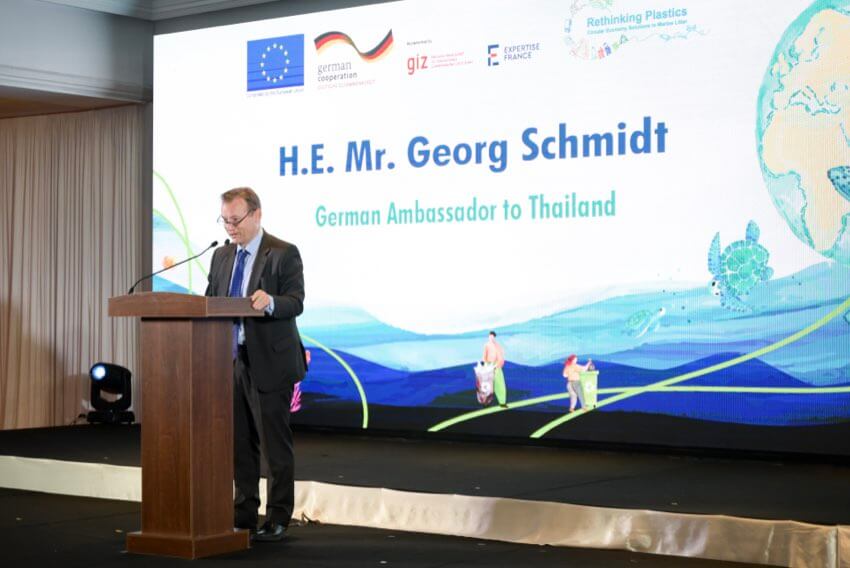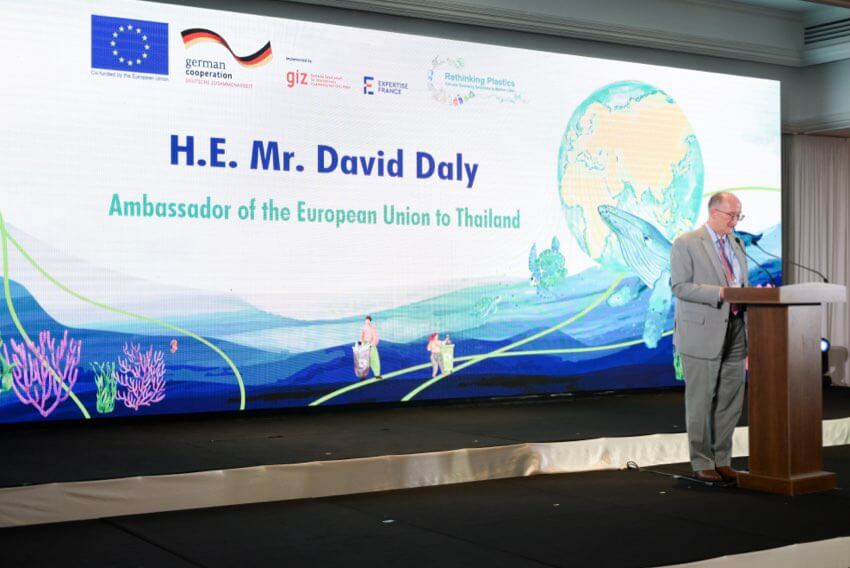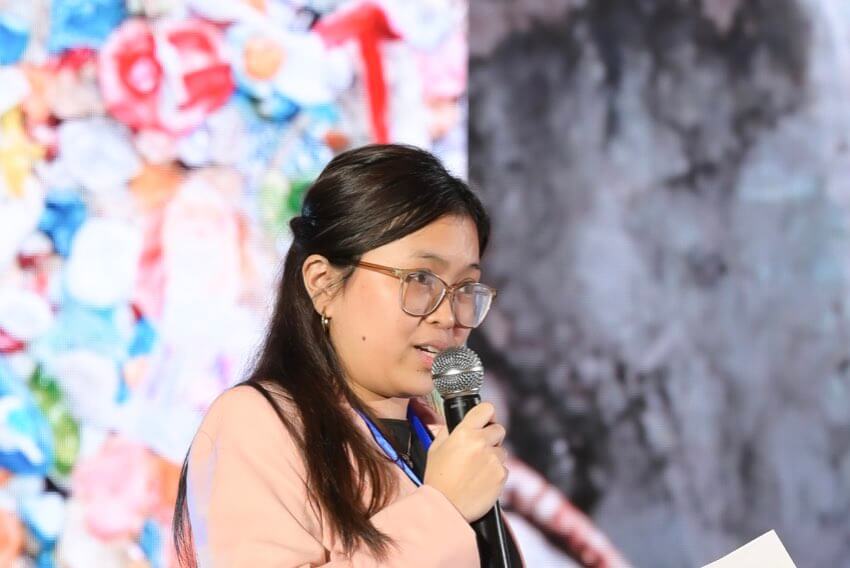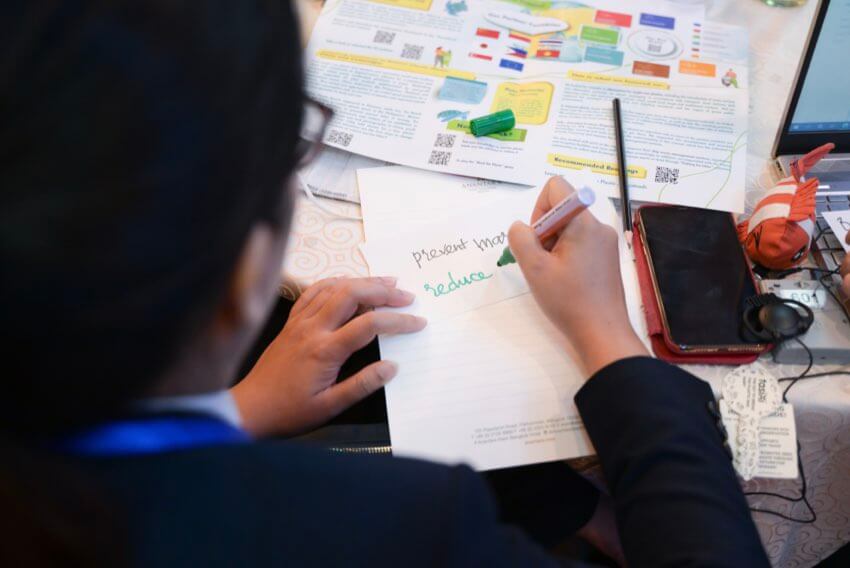Navigating towards a Future without Plastic Pollution: ‘Rethinking Plastics’ takes stock and shares learnings after 3,5 years of project implementation
After working jointly for the past 3,5 years on plastic waste- and marine litter-related challenges, representatives from the ‘Rethinking Plastics’ partner countries and the European Union (EU) met today for the regional closing conference of the project to summarise its results and the lessons learnt. Kicked-off in 2019, the project brought together seven countries from Asia and the EU to exchange on policies, business models, best practices and their upscaling potential to reduce plastic leakage into the oceans, in sectors such as sustainable consumption and production, green public procurement, and on improving plastic waste management on land and sea.
During the closing event H.E. David Daly, Ambassador of the European Union to Thailand said:
"Within the overall goal of saving and reusing resources to an extent possible, and limiting unsustainable resource dependencies, we in the European Union are of strong belief that the solution lies in transitioning towards a more circular economy. The project ’Rethinking Plastics – Circular Economy Solutions to Marine Litter’ allowed us to deepen the exchanges on policies, approaches and experiences with our key partners in East- and Southeast Asia and learn from each other. I am convinced that all the work done, the solutions developed, and the results achieved under this project, will prove to be of considerable value added in our future work and cooperation.”
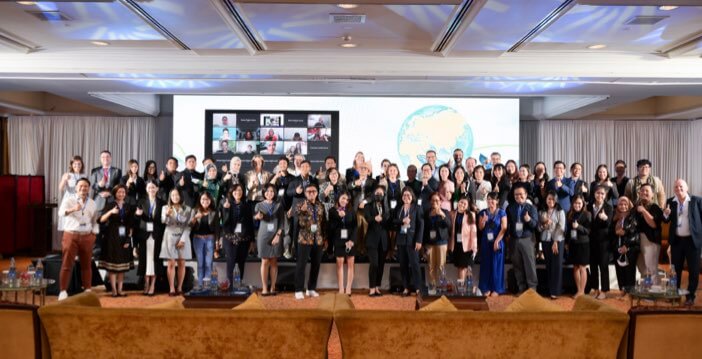
The closing conference was attended by some 120 participants in Bangkok, among them Dr. Pinsak Suraswadi, Deputy Permanent Secretary of the Ministry of Natural Resources and Environment Ambassador in Royal Thai Government, the Ambassador of Germany to Thailand, H.E. Mr. Georg Schmidt, Mr. Rémi Lambert, Deputy Head of Mission French Embassy to Thailand, and representatives by other European Union Member States as well as online participants from around the region. Under the event title “Rethinking Plastics – Now and in Future: Navigating towards a Future without Plastic Pollution” the program included technical exchanges on the project’s key aspects and pilot projects implemented, as well as a policy exchange session with insights and inspiration for future tasks and exchanges. Findings were shared from the 24 pilot projects supported in Thailand, China, Indonesia, the Philippines and Vietnam, and from the five awareness campaigns that were testing innovative approaches for reducing marine litter.
“The Ministry of Natural Resources and Environment of Thailand has been focussing on managing plastic waste at both national and regional levels by announcing the Plastic Waste Management Roadmap (2018-2030) formulating an action plan to drive the implementation of integrated plastic waste prevention and solutions in the country throughout the life cycle” stated Dr. Pinsak Surasawadi, Deputy Permanent Secretary, Ministry of Natural Resources and Environment, the main political project partner in Thailand. “On behalf of the Ministry of Natural Resources and Environment of Thailand, we would like to express our gratitude to the European Union (EU), the German Federal Ministry for Economic Cooperation and Development (BMZ) and GIZ and Expertise France for the support for Thailand's plastic waste management. Moreover, we would like to thank the various partners for being a mainstay in the implementation of the project to achieve the objectives and goals.”
H.E. Mr. Georg Schmidt, Ambassador of Germany to Thailand said: “A key success factor of the project was the variety of stakeholders involved – not only here in Thailand, but in all project countries we connected the local levels, involving communities and households, local businesses and administrations and exchanged about these approaches on national level between the countries. It was very interesting to hear the impressions and results from the other project countries in more detail today. The concrete actions and findings have already inspired initiatives and policy development and will continue to do so, I am sure of this.”
Mr. Rémi Lambert, Deputy Head of Mission, Embassy of France to Thailand added: “Such a complete approach providing advice to political partners, implementing joint activities, and supporting pilot projects seems to be the most efficient way to tackle the plastic waste challenge. Bringing together representatives from the various countries involved to share experiences and knowledge is a great opportunity to improve not only the scientific and academic understanding of plastic contamination, but also the ability to raise awareness and find new solutions and new technologies.”
Alvaro Zurita, Team Leader of the ‘Rethinking Plastics’ project from GIZ summarised: “The past 3,5 years have been a great journey. We were able to support policy processes, such as on Extended Producer Responsibility and to share the key lessons learnt from the European Union. We prepared studies, recommendations, and policy briefs, and engaged with multiple stakeholders in seven different countries in Asia. I would like to thank our political partner institutions and all involved businesses, organisations and academia for their commitment and willingness to rethinking the plastics value chain and I hope that we will continue doing so jointly.”
Among the key topics on which the project focused was Extended Producer Responsibility, an approach based on the principle that whoever introduces packaging or packaged goods into the country’s market remains responsible for it. The project contributed to policy development and facilitated exchanges and knowledge sharing with partner countries. It also worked with ports and fishing communities to reduce waste from ships and fishing vessels. For example, the project worked on improving port waste management in five important ports in the region, among them Bangkok Port, through an assessment of procedures and by introducing, among others, advanced online notification systems to facilitate waste delivery and disposal in ports. In addition, over 150 fishing vessels joined Fishing for Litter activities, and several trainings and exchanges with participants from the fishing communities took place to develop guidelines and better practices. In the area of sustainable consumption and production of plastics, the project addressed the challenge of reducing single-use plastics in e-commerce and in food delivery; explored options for packaging alternatives and sustainable business models; worked on sustainable plastic recycling; as well as on standards and ecolabels for plastic packaging and products, which includes, for example, a newly developed ecolabel in the Philippines.
Overall, the ‘Rethinking Plastics’ project held more than 70 events, with more than 1,200 people directly involved in planning, consultation or decision-making processes related to waste collection, sorting and recycling, and plastic waste reduction at local levels. The awareness raising campaigns in five countries involved more than 24,000 participants and visitors and reached out to more than 5 million people on social media with the message to take action and reduce especially single-use plastics in their daily lives.
Find the Voices from the EU Delegations Video here: EU Voices - YouTube
Find the Voices from selected Pilot Projects here: https://youtu.be/Zq8MdwcSAgo

